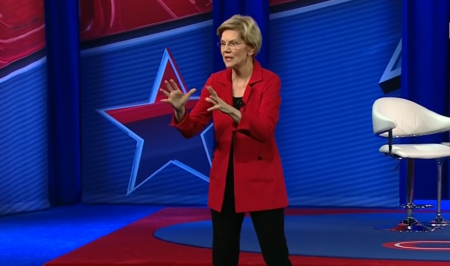Christian economics places inflation blame where it belongs, on government

Consumers have always complained about prices. The classic Christmas movie, It’s a Wonderful Life, portrays Potter the banker as greedy because he wants the Bailey Savings and Loan to operate like a business and charge market rates for mortgages. Recently, the financial adviser Dave Ramsey was crucified on Twitter for suggesting that landlords should charge market rates for rent.
Consumer prices rose recently 7% over last year and with inflation setting records, President Biden joined the choir singing against the greed of businesses:
“Prices have climbed 16% at the meat counter in the last year, and so President Biden is rounding up the usual scapegoats: Big meat producers.
’While their profits go up, the prices you see at the grocery stores go up commensurate and the prices farmers receive for the products they are bringing to market go down,’ Mr. Biden said Monday. ‘This reflects the market being distorted by a lack of competition,’ adding that ‘capitalism without competition isn’t capitalism; it’s exploitation.’”
And Elizabeth Warren carries a lifetime membership card to the choir:
“’Prices at the pump have gone up,’ she told an MSNBC interviewer last month. ‘Why? Because giant oil companies like Chevron and ExxonMobil enjoy doubling their profits. This isn’t about inflation. This is about price gouging.’
Warren had the same explanation for why turkey has become so expensive: ‘plain old corporate greed.’ She demanded a Justice Department investigation, accusing poultry companies on Nov. 23 of ‘abusing their market power’ by ‘giving CEOs raises & earning huge profits.’”
Consumers have always thought the price of everything was too high. Farmers have always thought they were too low and convinced the federal government through most of the 20th century to prop up farm prices through subsidies or price controls. If only we knew what the right price for everything was.
For most of Christian history, theologians had embraced the economics of Aristotle and Cicero and viewed commerce as beneath contempt and more immoral than prostitution because merchants didn’t charge a just price. Theologians told merchants their profession would send them to hell. Merchants asked how they could avoid hell. Theologians told them to charge a just price. Merchants asked, what is a just price? Theologians said, we’ll get back to you.
Aristotle had written that values in a market exchange must be equal. But that wasn’t much help, because how do merchants and consumers determine value? For much of church history theologians arranged products in hierarchies of nobility. Wheat is more noble than mice because people eat wheat and mice destroy it, so wheat should cost more than mice. That satisfied few people. Meanwhile, successful merchants used part of their profits to buy titles of nobility so they could protect their earnings from others in the nobility and gave part to the Church to buy their way into heaven.
1,500 years later, theologians got back to the merchants with an answer after a lot of debate. The answer will shock some and anger others but consider that the debate over just prices was one of the major issues for theologians for over a millennium. How many readers have put even five minutes into thinking about what constitutes a just price?
Theologians during the Reformation realized that defining a just price is so complex that only God knows what it is. It requires understanding the scarcity of supply, the amount of demand, the supply chain, quality and many other factors. So, the best humans could do is to rely on the common price arrived at in a free market, that is, one in which neither party can compel the other to meet his terms.
Today, prices rise for the most part because the Fed pumped up the money supply by almost 40% in 2020 and 2021 compared to the year before by one measure. The money supply had grown around an average of 10% in the previous decades. The Fed goosed the money supply so much to counter the COVID recession of 2020 because when it does, people have more cash than they want to save and spend the excess on cars and washing machines, which boosts the economy for a short while. Eventually, the artificial boom busts and people lose their jobs.
Higher prices merely reflect greater demand for a limited supply. When more people bid on the same goods, prices naturally rise because some consumers value those goods more than others. Still, markets in the U.S. for consumer goods such as food and gasoline are relatively free. So according to the theologians who debated a just price for over a thousand years, the higher prices are moral and not a sign of greed. Few theologians today know enough about markets to discuss prices.
Biden and Warren should blame record setting inflation today on the Fed’s monetary policies and supply chain disruptions from COVID. The Fed’s policies are immoral, but the prices in the market place are just prices.
Roger D. McKinney lives in Broken Arrow, OK with his wife, Jeanie. He has three children and six grandchildren. He earned an M.A. in economics from the University of Oklahoma and B.A.s from the University of Tulsa and Baptist Bible College. He has written two books, Financial Bull Riding and God is a Capitalist: Markets from Moses to Marx, and articles for the Affluent Christian Investor, the Foundation for Economic Education, The Mises Institute, the American Institute for Economic Research and Townhall Finance. Previous articles can be found at facebook.com/thechristiancapitalist. He is a conservative Baptist and promoter of the Austrian school of economics.






















